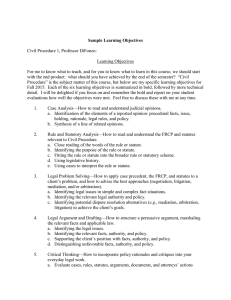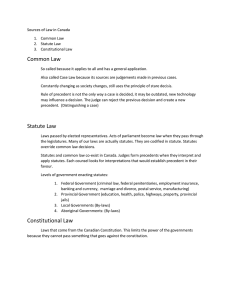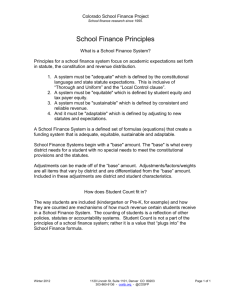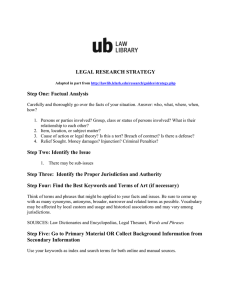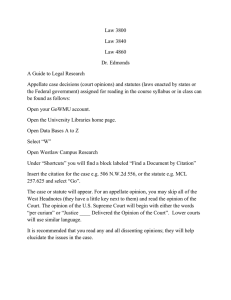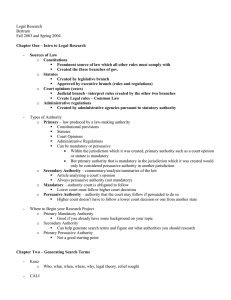Finding Statutes Introduction
advertisement
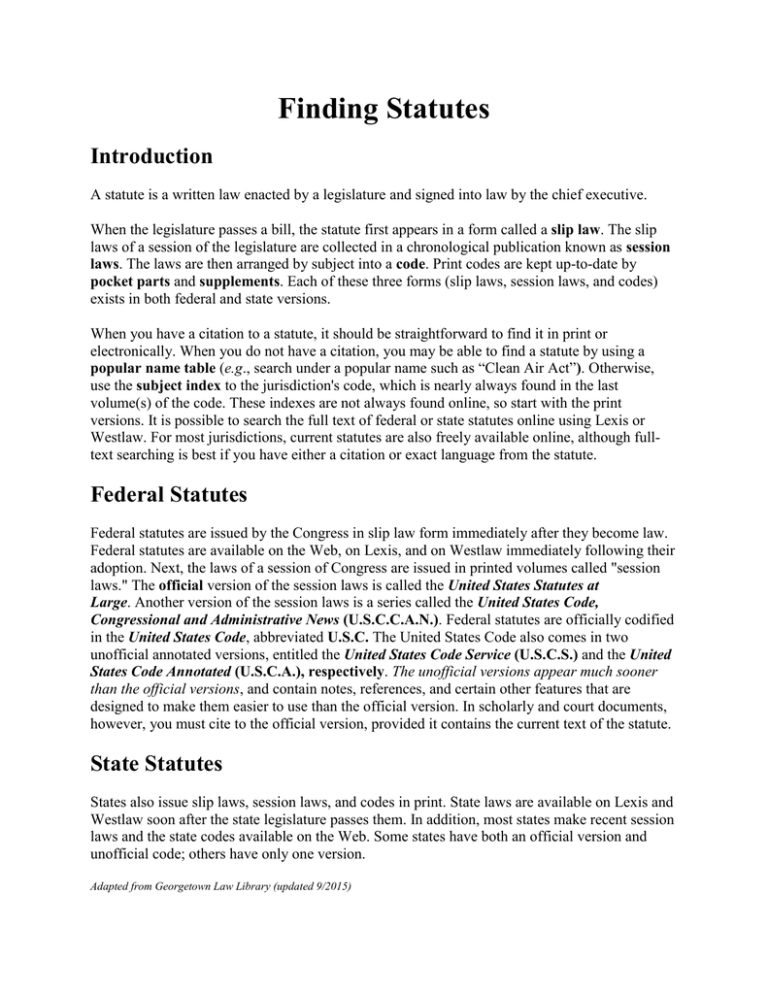
Finding Statutes Introduction A statute is a written law enacted by a legislature and signed into law by the chief executive. When the legislature passes a bill, the statute first appears in a form called a slip law. The slip laws of a session of the legislature are collected in a chronological publication known as session laws. The laws are then arranged by subject into a code. Print codes are kept up-to-date by pocket parts and supplements. Each of these three forms (slip laws, session laws, and codes) exists in both federal and state versions. When you have a citation to a statute, it should be straightforward to find it in print or electronically. When you do not have a citation, you may be able to find a statute by using a popular name table (e.g., search under a popular name such as “Clean Air Act”). Otherwise, use the subject index to the jurisdiction's code, which is nearly always found in the last volume(s) of the code. These indexes are not always found online, so start with the print versions. It is possible to search the full text of federal or state statutes online using Lexis or Westlaw. For most jurisdictions, current statutes are also freely available online, although fulltext searching is best if you have either a citation or exact language from the statute. Federal Statutes Federal statutes are issued by the Congress in slip law form immediately after they become law. Federal statutes are available on the Web, on Lexis, and on Westlaw immediately following their adoption. Next, the laws of a session of Congress are issued in printed volumes called "session laws." The official version of the session laws is called the United States Statutes at Large. Another version of the session laws is a series called the United States Code, Congressional and Administrative News (U.S.C.C.A.N.). Federal statutes are officially codified in the United States Code, abbreviated U.S.C. The United States Code also comes in two unofficial annotated versions, entitled the United States Code Service (U.S.C.S.) and the United States Code Annotated (U.S.C.A.), respectively. The unofficial versions appear much sooner than the official versions, and contain notes, references, and certain other features that are designed to make them easier to use than the official version. In scholarly and court documents, however, you must cite to the official version, provided it contains the current text of the statute. State Statutes States also issue slip laws, session laws, and codes in print. State laws are available on Lexis and Westlaw soon after the state legislature passes them. In addition, most states make recent session laws and the state codes available on the Web. Some states have both an official version and unofficial code; others have only one version. Adapted from Georgetown Law Library (updated 9/2015)
